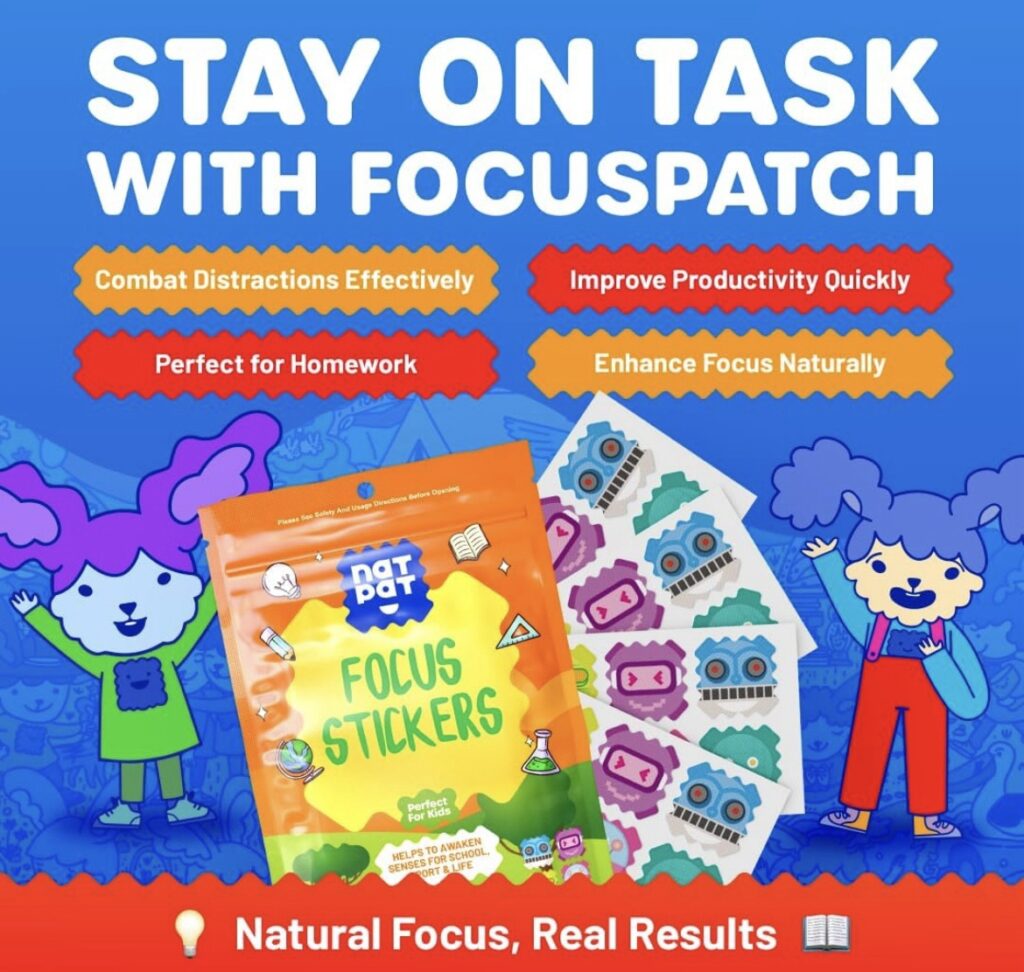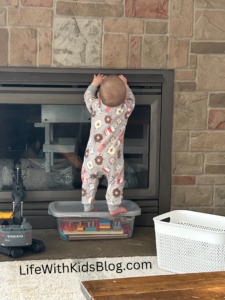
Why Do Homework Battles With Kids Happen So Often?
If you’ve ever sat at the kitchen table while your kid cries over a math worksheet and you’re this close to crying yourself… yep, been there.
In our house, homework used to be the emotional landmine of the evening. School pickup? Fine. After-school snack? Great. But once that folder came out of the backpack? Meltdown.
At first, I blamed attitude. I thought maybe my kid was just trying to get out of it. But the truth is, homework battles with kids are almost never about laziness. They’re usually about burnout. Emotional overload. A brain that’s completely tapped out from the school day.
Here’s what I started to notice every afternoon:
- Crying before even opening the homework folder
- Saying “I can’t” before even trying
- Total emotional shutdown after one small mistake
- Refusing to start, even on subjects they liked yesterday
The thing is, they’ve already held it together all day—following directions, sitting still, dealing with sensory overload, maybe even masking emotional or attention challenges. And now we’re asking them to sit back down and focus?
It’s no wonder so many kids crack. I didn’t fully get it until I read about how emotionally drained kids can be after a structured school day in this piece on daily toddler meltdowns after school.
Even though it was focused on toddlers, that feeling of collapsing at home? Still totally applies to school-age kids.
Once I understood that the outbursts weren’t random—and weren’t personal—I stopped dreading homework time quite so much.

Is It Laziness—or Something Deeper?
I’ll be honest: I used to think it was just laziness.
I’d say stuff like…
“You’ve done this before.”
“You just don’t want to try.”
“Why are you making this harder than it is?”
Looking back now, I cringe. Not because I was trying to be harsh—but because I didn’t know any better yet.
What I’ve learned since? Most homework battles with kids are actually cries for help.
Here’s what might be going on under the surface:
1. Mental exhaustion
School drains kids. Emotionally, socially, and mentally. For many, homework is the final straw.
2. Anxiety or fear of failure
Some kids freeze up because they’re afraid they’ll get it wrong. So they avoid it altogether to protect their self-esteem.
3. Sensory or attention challenges
This was big for us. When I realized my child’s struggles were related to attention span and emotional dysregulation, everything changed. This guide for parenting kids with ADHD made me see the connection between focus issues, overwhelm, and those daily homework meltdowns.
4. Perfectionism
Kids who think they need to get it exactly right often shut down if it doesn’t come easily.
5. Emotional buildup
If the school day already drained them and they’ve been holding it together, homework time becomes the emotional release.
Once I stopped calling it laziness and started calling it what it was—overwhelm, anxiety, or sensory overload—I could actually start helping.

Common Reasons Kids Fight Homework (That Have Nothing to Do With Laziness)
Once I stopped assuming homework battles were about attitude, I started paying closer attention to the why. And wow—there were layers.
Here are some of the most common reasons I discovered (and lived through) that explain why kids push back so hard when it’s time to sit down and do schoolwork at home:
1. They’re mentally tapped out
All day long, our kids are told when to sit, when to talk, when to move, when to eat. By the time they get home, their ability to concentrate is gone. That’s especially true if they’re more sensitive to structure or authority. My child would often fall apart over the tiniest assignments—not because they were difficult, but because his brain was just… done.
2. The instructions don’t make sense to them
You’d think “circle the nouns” would be straightforward, but kids don’t always learn things the way we did. When the wording is confusing or the concept hasn’t clicked yet, frustration sets in fast—and it shows up as defiance.
3. They’re afraid of getting it wrong
I didn’t realize how much homework anxiety in children can sound like “I don’t want to do it.” Sometimes, that refusal is just fear in disguise. My kid once ripped up a worksheet after getting one problem wrong—because he thought mistakes meant failure.
4. They need to move, not sit still again
Kids aren’t built to sit for long stretches. So asking them to go from six hours at school right into 30 more minutes at the table is sometimes too much. We had a lot more success once we added movement breaks—or let him do his work while pacing or even lying on the floor.
5. It’s become a power struggle
Once the battles start, kids expect them. Even when they’re not upset about the assignment, they brace for conflict.
We were stuck in this cycle until I learned how to recognize behavior as a response to emotional overload, not just “bad behavior.” Articles like Navigating Stormy Waters helped me rethink how I responded, which made a hugedifference in how my child reacted.
Homework resistance isn’t a discipline issue. It’s usually an emotional, cognitive, or even physical response to stress—and until we recognize what’s underneath it, we’re fighting the wrong battle.

What Homework Stress Looks Like at Different Ages
Not every kid shows stress the same way, and it took me a while to realize that homework battles with kids can show up in subtle ways—especially as they grow.
Here’s how I started noticing homework-related stress play out across different age groups:
Preschool to Kindergarten (Ages 4–6)
- Crying the moment they hear the word “homework”
- Meltdowns over simple tasks like tracing letters or coloring inside the lines
- Constant stalling—suddenly needing water, snacks, or to go potty
- Saying “I don’t want to” without being able to explain why
This age group is still adjusting to the entire concept of structured learning. Asking them to focus after school—when their little brains are fried—is a recipe for a meltdown.
This is when I started focusing on emotional decompression after school before even attempting a worksheet. Just a 20-minute play session made everything smoother.
Elementary (Ages 7–10)
- Complaining about hating school or feeling “dumb”
- Ripping papers, yelling, or shutting down after one mistake
- Sneaking off or avoiding their work altogether
- Getting easily distracted, then frustrated when they fall behind
This is also when kids start becoming more aware of how they “measure up” to others—so if they’re struggling, that pressure builds.
When my son hit this stage, I noticed his self-confidence drop big time. He’d crumble if he didn’t “get it right” immediately. That’s when we started exploring learning differences and school fit and read through What If We Let Kids Learn Differently?. That mindset shift? Total game-changer.
Tweens (Ages 11–13)
- Procrastinating to the point of panic
- Saying things like “Why even bother?” or “It doesn’t matter anyway”
- Arguing with parents instead of asking for help
- Developing physical symptoms—headaches, stomachaches—when it’s time for schoolwork
At this stage, stress can start to look like apathy or even defiance, but often it’s a sign of deeper homework anxiety and mental burnout.
The takeaway? If your child is resisting homework, it’s probably not about the homework itself. It’s about what that paper represents—pressure, comparison, perfectionism, or just complete emotional fatigue.
And sometimes… they’re just plain tired.
I had to remind myself of that after many long afternoons filled with sighs, slammed pencils, and a lot of me wondering, “Is it just like this in our house?”
(Spoiler: it’s not. The Unmatched Exhaustion of Parenthood will remind you you’re definitely not alone in this chaos.)

My Experience With Homework Meltdowns at Home
Let me paint you a picture—because if you’re living through this, you’ll probably recognize it instantly.
The backpack hits the floor. I try to give a five-minute break, maybe offer a snack, keep things calm. Then I gently say, “Hey buddy, let’s knock out that worksheet real quick.”
And suddenly, I’m in a standoff.
Tears. Yelling. “I can’t do this!”
Pencil thrown. Paper crumpled. Me counting to ten like it’s a meditation session.
This became our routine for a solid stretch. And every single time, I would wonder, “What am I doing wrong?”
But then I started looking at the meltdown as a symptom—not the problem itself.
And that shifted everything.
I realized:
- He wasn’t being dramatic—he was emotionally flooded.
- He wasn’t refusing—he was exhausted.
- He wasn’t lazy—he was overwhelmed and didn’t know how to ask for help.
Once I took that pressure off both of us, we were able to start fresh. I focused less on finishing the worksheet and more on understanding what he needed in the moment. That approach? Night and day difference.
And look—I still have evenings where I want to cry into a bag of Goldfish crackers. But learning how to parent through those high-stress homework moments made everything a little more doable.
That’s also why Navigating Parenthood Together hit home for me. When both parents are trying their best and still feel like they’re failing, it’s comforting to know you’re not the only ones riding that rollercoaster.

How We Finally Broke the Homework Battle Cycle
This didn’t happen overnight—but here are the actual, real-life changes we made that finally started working for us:
1. We stopped doing homework immediately after school
We gave it at least 30–45 minutes before even mentioning it. This became decompression time, and it was non-negotiable.
2. I let go of the “do it now or else” mindset
Sometimes we’d do homework after dinner. Or split it into chunks. Removing the time pressure helped him feel more in control.
3. We added a visual checklist
Simple things like: snack, play, homework, dinner, bath, bedtime. He liked knowing what came next—and I stopped repeating myself a million times.
4. I let him move
Doing math problems while lying on the floor? Cool. Reading while bouncing on a yoga ball? Fine. Movement kept his brain engaged—and his body calmer.
5. I praised effort, not results
Instead of saying “You did it perfectly!” I started saying, “I love how you stuck with that problem” or “You worked so hard on that.”
It made him want to keep trying, even when it wasn’t easy.
These shifts weren’t about giving in—they were about giving grace. Once we made homework feel less like punishment and more like just another part of the day, the battles slowed down.
That’s when I knew we weren’t just surviving anymore—we were actually starting to build confidence around learning again.

5 Practical Tips That Made Homework Time Peaceful
Let’s be honest—homework battles with kids don’t magically disappear. But you can make them less dramatic and a whole lot more peaceful with a few practical tweaks. These are the things that worked for us, and they might just help your evenings feel a little less like war zones too.
1. Create a “Homework-Only” Spot
We picked a calm, distraction-free zone—not the kitchen table during dinner prep. Even just a designated corner with a small table, lamp, and supplies helped set the tone.
The separation between “home” and “homework” made a surprising difference.
2. Build a Wind-Down Buffer Before Starting
I used to rush right into schoolwork, but giving my kid time to decompress helped reduce that after school tension. A snack, a bit of quiet play, or even a few minutes outside changed everything.
This ties right in with what I learned from why after school meltdowns happen—kids need a reset before diving back into brainwork.
3. Give Choices
I stopped demanding and started offering:
“Do you want to start with math or reading?”
“Would you rather use your colored pencils or a pen today?”
These little choices gave him ownership and cut down on resistance.
4. Break It Into Chunks
One long worksheet was overwhelming, so we started using a timer—10 minutes on, short break, repeat. That “little bit at a time” strategy helped reduce panic and increase focus.
5. Celebrate Small Wins
No more holding applause for straight A’s only. Now we celebrate showing up, trying again, or finishing a task that used to lead to tears.
Even a quick “You stuck with it when it got hard—I’m proud of that” helped build momentum.
These aren’t magic solutions. We still have tough days. But when I stopped trying to “fix” my kid and started supporting the way he learns, everything felt lighter.
For families raising kids who learn a little differently or have a harder time with focus, these parenting strategies for ADHD have been incredibly helpful. They gave me fresh tools and reminded me I’m not doing this alone—and neither are you.

When to Worry (and What to Watch For)
Not every struggle is a red flag—but sometimes, homework battles with kids go beyond the typical pushback. I had to learn how to tell the difference between a “just tired” kind of meltdown and signs that something deeper might be going on.
Here are a few things that made me pause and dig a little deeper:
1. It was happening every single day—no matter what I tried
Even on lighter homework days, the resistance was immediate. No breaks, no bribes, no encouragement seemed to help.
2. My child started saying things like “I’m dumb” or “I hate school”
Those words stung. And that’s when I knew it wasn’t about not wanting to do homework—it was about how he felt about himself while doing it.
3. Homework triggered full-body anxiety
We’re talking stomachaches, headaches, tears, and yelling—sometimes even before he opened his backpack.
4. There were big gaps between what he knew and what he could show
He could explain concepts beautifully out loud, but when it came to writing them down? Total freeze. That’s when I started to wonder if his learning style just didn’t match the structure he was being asked to fit into.
If you’re seeing these signs, don’t brush them off. It doesn’t mean there’s something “wrong” with your child—but it might mean they need a different kind of support.
That’s why I’m so grateful I came across this article about what to do when your child doesn’t fit the school mold. It gave me permission to stop trying to cram my kid into a box—and start asking better questions about how he learns.

How to Talk to Teachers When Homework Becomes a Struggle
This part was tough for me at first. I didn’t want to be “that parent,” and I definitely didn’t want it to seem like I was blaming the teacher. But once I realized that we were hitting a wall, I had to speak up.
Here’s what helped those conversations go more smoothly:
1. Come in with examples, not just emotions
Instead of saying “Homework is a nightmare,” I shared specifics: “He cries every time we open his math folder,” or “She spends 30 minutes staring at the page without writing anything.”
2. Ask for insight, not just solutions
I’d say things like: “Have you noticed similar struggles during the day?” or “Does he seem overwhelmed in class too?” This made it feel like teamwork—not criticism.
3. Be open about what’s happening at home
Letting teachers know what homework time actually looks like helped us work together on realistic expectations.
4. Ask about support options
Sometimes there are alternative assignments, extra time, or modifications that can ease the pressure—but you won’t know unless you ask.
5. Keep it respectful and collaborative
Most teachers want your child to succeed just as much as you do. When I approached it as “Let’s figure this out together,” I always got a better response.
And honestly? Just starting that conversation lifted a huge weight off my shoulders.
If you’re hitting that same breaking point, this honest perspective on doubting your own parenting decisions is worth a read. Because sometimes the first step to helping your child… is admitting you don’t have all the answers.

Encouragement for Tired Parents in the Trenches
If you’re in the thick of it right now—your child is refusing homework, every evening feels like a battle, and you’re second-guessing your parenting skills—I want to say this clearly:
You’re not failing.
You’re not alone.
And this phase? It doesn’t mean your child is doomed or that you’re doing anything wrong.
There were nights I sat in the hallway outside my kid’s room wondering if I was the only parent losing it over a worksheet. I’d promise myself I’d stay calm next time… only to find myself back in the same standoff 24 hours later.
But here’s the truth: homework battles with kids don’t define your parenting.
They just reveal where your child might need extra support, patience, or a different approach.
You’re showing up. You’re learning. You’re trying again every single day. And that effort? It matters—even when the results don’t show up right away.
So if tonight ends in tears (again), or if your kid pushes the paper away and screams “I can’t do this!”—remember: you’re doing something incredibly important just by being there. Showing up with love, even when it’s hard, is what makes the difference in the long run.
Need a laugh or a little perspective after the storm? The Emotional Rollercoaster of Putting Kids to Bed will make you feel seen. Because let’s face it—parenting isn’t always picture-perfect. But it’s real. And we’re all figuring it out one meltdown (and worksheet) at a time.

As an Amazon Associate we earn from qualifying purchases through some links in our articles.



